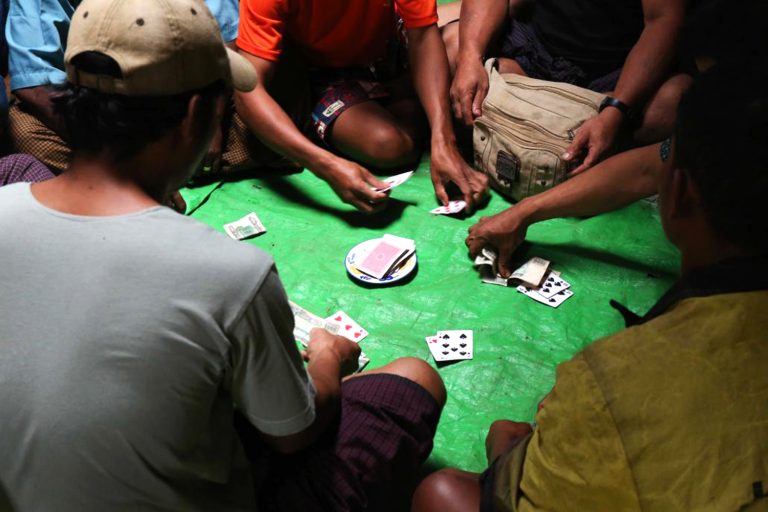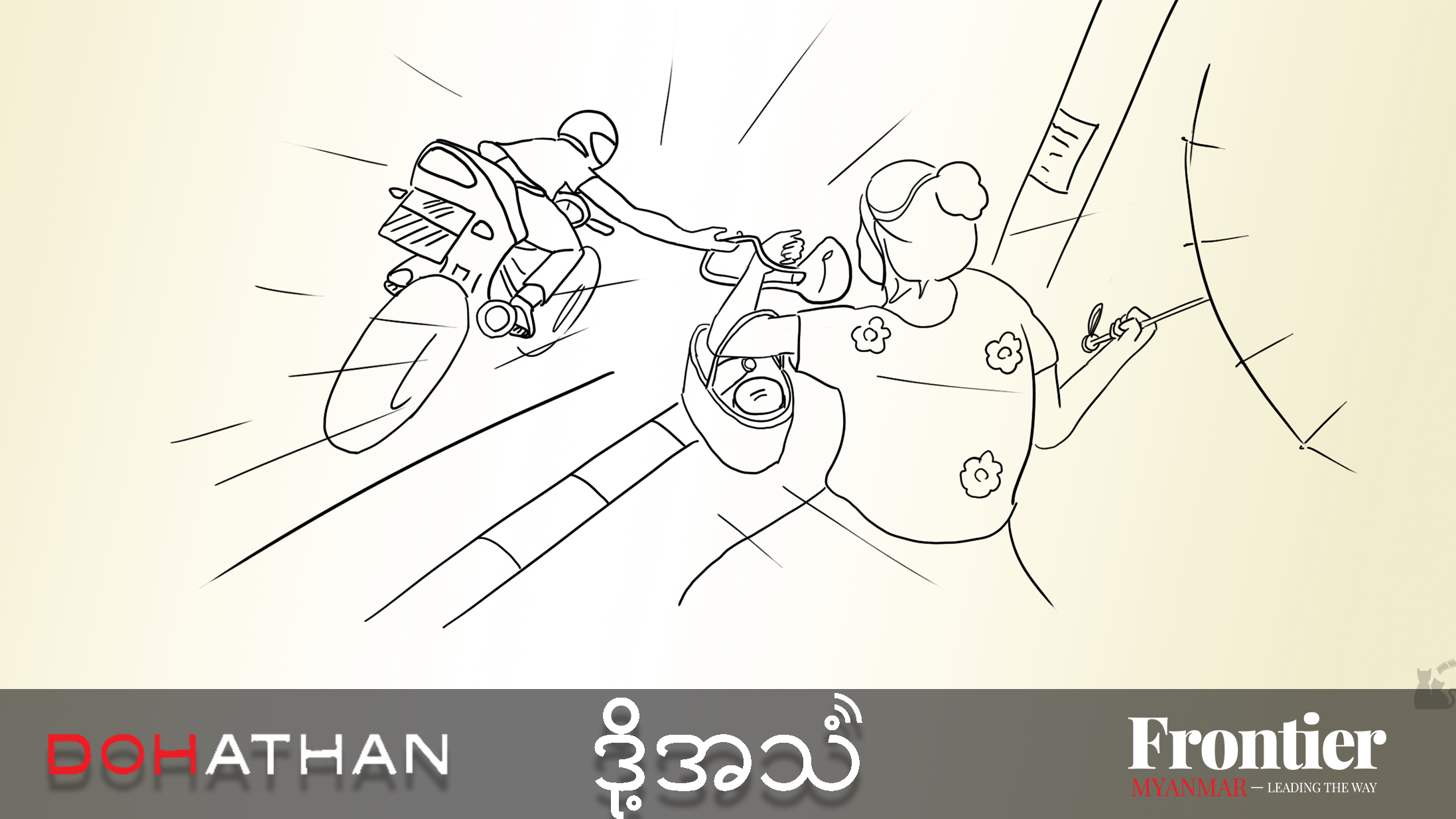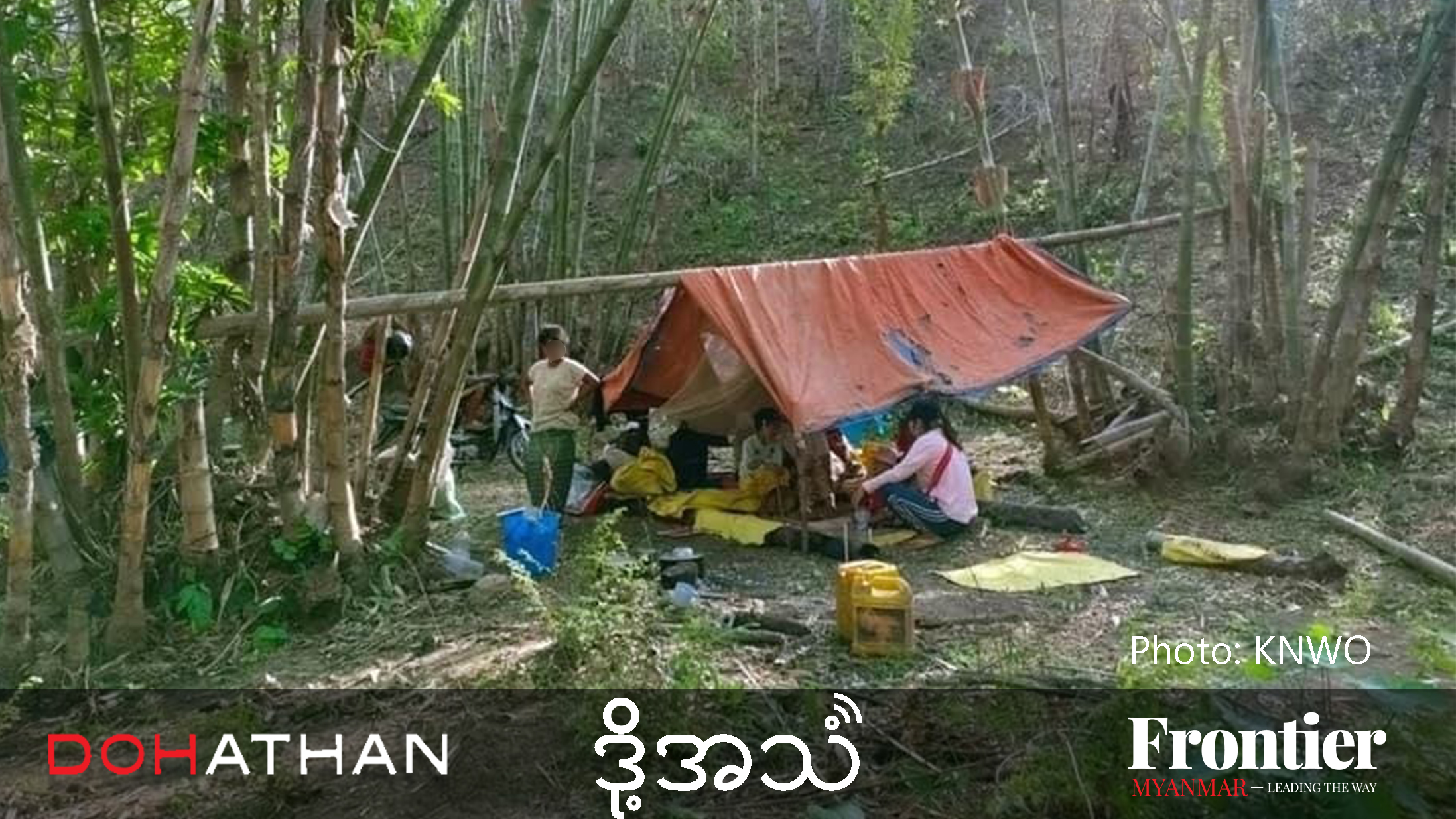The sexual abuse of children is widespread in Myanmar but attempts to increase the penalty for child rapists have twice ended in failure.
By CHERRY THEIN | FRONTIER
THE SEXUAL abuse of children rarely makes the news in Myanmar, because most of the time cases are covered up.
Cases that are publicised are contributing to breaking the silence about an evil that society appears to not want to acknowledge.
Unfortunately, the media coverage of such cases sometimes shows no respect for ethical standards and the result is insensitive stories that violate the privacy and the dignity of the victim and expose him or her to further stigmatisation.
The sexual abuse of children is occurring across the country and involves boys as well as girls. It is common for the sexual predators of children to be relatives or close family friends who are trusted by the victims’ parents.
Support more independent journalism like this. Sign up to be a Frontier member.
The Pyo Khin Thit Foundation based at Maubin Township in Ayeyarwady Region provides assistance to an average of between five and 10 child rape victims a year, said Daw Aye Sandar Min, who works in the foundation’s child development section. The number of unreported cases of sexually abused children is likely to be much higher, she said.
The foundation helps victims to take legal action, but only about a third of the cases go to court because of a lack of confidence in the judiciary. The foundation raises awareness about child rights and the laws protecting children by running programs in villages, where Aye Sandar Min said most cases are the result of a lack of knowledge and education.
She said an obstacle to addressing the problem is a paucity of research or reliable information. Some international organisations have conducted research on the sexual abuse of children in Myanmar but most of it is confidential, Aye Sandar Min said.
“Raising awareness is not enough; it is time for decisive action,” she told Frontier on September 25. “The authorities should consider law reinforcement and strengthening the support structure at the national and local levels to stop the sexual abuse of children,” she said.

Attempts in parliament to strengthen penalties against child rapists have twice ended in failure. (Steve Tickner / Frontier)
U Tayzadipati, patron of the Shwechinthae Child Development Centre at Shwebo Township in Sagaing Region, told Frontier on September 21 that although it was common for rape and other sexual violations of children to be condemned, society ignored the hidden sexual abuse of children. Perpetrators sometimes abused children without knowing they were committing an offence, he said.
“Most people think the sexual abuse of children is not so bad compared to rape [of adults] and other acts of sexual violence but I think it is more important,” U Tayzadipati said. “When the media or Facebook report cases of terrible sexual violence they attract a lot of attention and hopefully result in a court case but it is rare to hear about the punishment.
A 30-year-old woman who lives in Yangon’s Mayangone Township and asked not to be named told Frontier of fear and confusion when she was sexually molested by her father’s friend when she was six or seven. The man kissed her on the lips and rubbed her back with his penis. She knew his behaviour was unacceptable but dared not tell her family. She was also shocked when she saw her father caress the chest of her friend, who was the same age.
“I felt unsafe,” the woman said. “My mother told me to never trust a man, even my father. I have an image of ferocious men wearing masks of gentleness so they can abuse girls. When I grew older, I learned that boys are also victims of sexual abuse.”
“Men think children are too young to understand what they are doing to them and that they will forget about it when they grow older. They never consider the feelings of their victims and how such a traumatic experience can affect the child’s development. Victims sometimes become perpetrators when they are adults; it is a vicious circle and it is not right.”
“I will never forget what happened to me; it haunts my memory,” she said.
U Thar Nyunt, a parent who lives in Yangon’s Hlaing Township and does voluntary work to raise awareness of children’s rights, said drug abuse contributed to the sexual abuse of children, and other reasons included perpetrators suffering from mental illness.
The sexual abuse of vulnerable children cannot be stopped but it can be reduced, he said, adding that it was important to help the young victims heal their trauma so they can recover and be successful in life.
“Counselling is one way of helping victims to heal and we need more professional counsellors if the government does not have specific social services and support. Parents and society can also provide support within their limitations,” Thar Nyunt said.
“Our society is not open about sex but we can teach people, including children, what is responsible sexual behaviour. If we do not take action, there will always be sexual abuse cases involving the vulnerable,” he said.
Thar Nyunt said the conservative attitudes of parents and society were an obstacle to teaching sex education in schools and a result was that children were instead learning about sex from social media.
In Myanmar society, many parents seem unaware of the need to ensure their children are not exposed to the risk of sexual abuse, including by those who are trusted to provide care, such as relatives and friends. Parents worry that teenage children may be at risk of being sexually abused but seem to have never given thought to the possibility that their four- or five-year-olds could be abused.
Many parents also seem to be unaware that children can be curious about their sexuality, especially during adolescence. But as sex is a taboo subject in most homes, parents are unlikely to give their teenage children the information and support they need to understand their sexual development.
The definition of sexual abuse is broad and can include asking or pressuring a child to engage in sexual intercourse, indecent exposure of the genitals or a woman’s breasts, grooming a child targeted for abuse or using children to produce pornography.
Apart from physical injury, and the possibility of unwanted pregnancies and sexually-transmitted diseases, children who have been sexually abused are likely to suffer depression, post-traumatic stress disorder, anxiety and a propensity to become perpetrators in adulthood.
It is difficult to estimate the extent of child sexual abuse in Myanmar because most cases are never reported, U Tun Tun, a founder of the Mandalay-based Yankin Group, which helps to rehabilitate school dropouts and other troubled children, told Frontier on September 19.
In rural areas, the parents or guardians of children who have been sexually abused tend to keep quiet because they regard the effort involving in reporting cases and attending court hearings, often in distant towns, to be an inconvenience and would rather devote their time to work, Tun Tun said.
He said that in villages near Mandalay and in Sagaing Region, if an adolescent girl was raped and the offender was well known by her family, he would be expected to marry the victim.
If the victim of sexual abuse is a boy it is more difficult to resolve the case and the victim is expected to keep the incident a secret, increasing the likelihood of psychological consequences later in life, he said.
Tun Tun said there should a national strategy to raise awareness about the rights to which children are entitled under the United Nations Convention of the Rights of the Child, which Myanmar ratified in 1991. The strategy should include teaching adults how to report violations of the CRC, he said.
It was also essential to provide care centres to support the recovery and rehabilitation of children who have been sexually abused, but the closest the government comes to providing such assistance are facilities run by the Department of Social Welfare to aid rescued human trafficking victims.
Tun Tun said street children and orphans who have been sexually abused are often sent to youth training schools run by the Department of Social Welfare where they can be at risk of further abuse.
There was no specific government facility in Myanmar to provide care, support and counselling for young victims of sexual abuse, U Aung Myo Min, executive director of human rights education and advocacy NGO, Equality Myanmar, told Frontier.
Myanmar also lacks a law that specifically addresses sexual violence against children, though the Ministry of Social Welfare, Relief and Resettlement is revising the 1993 Child Law, which deals broadly with the care, education and protection of children, with the help of the UN Children’s Fund, UNICEF. Clauses in the Child Law lack clear definitions of what constitutes the sexual abuse of children, and make no reference to incest.
“We need a specific law, apart from that in the Penal Code, that addresses the sexual abuse of children so that legal action in such cases is more effective,” Aung Myo Min said, adding that any new legislation must include detailed definitions of what constitutes sexual abuse and introduce severe penalties for such offences.
Section 376 of the Penal Code provides for anyone convicted of raping a child aged under 16 to be liable to a prison term of between seven and 10 years.
The Child Law contains no section dealing specifically with rape and sexual abuse. It provides for anyone convicted of willfully mistreating a child to be liable to a maximum penalty of two years’ imprisonment and a K10,000 fine.
Parties to the UN Convention on the Rights of the Children are required under Article 19 to protect children “from all forms of physical or mental violence, injury or abuse, neglect or negligent treatment, maltreatment or exploitation, including sexual abuse while in the care of parent(s), legal, guardian(s), or any other person who has the care of the child”.
In what may be a reflection of the sexual conservatism of Myanmar society, an attempt in the Union Parliament in October 2013 to strengthen the penalties for those convicted of raping children ended in failure.
HHU Thein Nyunt, a lawyer who headed the New National Democracy Party, had proposed the introduction of the death penalty for those convicted of raping children aged under 10 and a life prison term for those convicted of raping a child aged under 16.
Of the Pyithu Hluttaw’s 440 MPs, only 19 voted in favour of the amendment.
Thein Nyunt tried and failed again in 2015, when he proposed the introduction of the death penalty for raping a child aged under 16.
“We have the death penalty for drug dealers and traitors. Why not child rapists?” Thein Nyunt was quoted as saying by the Myanmar Times on June 5, 2015. “I don’t understand the way parliament regards children and the future of our country.”
Child rape cases accounted for most of the 140 major crimes reported in Yangon Region in the 100 days from May 1, Police Major Hla Wai was quoted as saying in the Irrawaddy on August 18.
The report, which did not mention the number of cases for the period, quoted Hla Wai as saying a recent decision to raise the age of consent to 16 accounted for an increase in the number of reported child rapes.
Crime figures for Yangon Region last year showed that of 73 rapes reported between January and June, 44 involved children, many of whom were aged under 10, the Myanmar Times reported.
The August 2015 report quoted Police Captain Win Bo of the Yangon Region police media unit as saying that the high proportion of child rape cases was because they were more vulnerable than adults.
“They can’t defend themselves and often don’t dare to report [attacks] to their parents because they are scared,” he said.
Victims and perpetrators
Homosexual gang rape is common at a boy’s training school in Mandalay, says a former student who spent three years at the government-run facility. The school aims to provide boys from troubled backgrounds with a primary education and vocational skills.
“We were lenient with thieves, but for the rape cases, there was blood everywhere in the toilet,” said the former student, who asked not to be named.
The rapes occurred because the leaders of each residential block abused their power, he said. “Rapes happened, involving 15 people in each building. In building 1, there were about 10 people and the leader took the lead.”
The former student said he was aware of an incident at the school in which a boy was sexually assaulted with a stick and his bowel was ruptured.
Another victim of homosexual rape in Mandalay was a residential student at a monastic school that receives support from domestic and international NGOs. The boy told Frontier he was coerced into sexual acts by a person in charge. He said he was too frightened to report the abuse because the predator was his superior.
Late last month, The People’s Image journal reported the case of a 14-year-old girl in Magway Region’s Salin Township who was raped by her brother-in-law. She was adopted by the founder of an orphanage in Salin who was then alleged to have raped her twice.
Her friends reported the man after the second alleged assault and on September 28 charges were brought against him by the Department of Social Welfare on behalf of the girl’s guardian.
Police at Kyaiklat Township in Ayeyarwady Region have charged a high school history teacher with the alleged rape of girl students aged 15 and 14, the Irrawaddy reported on September 30.
It quoted Police Captain Htin Aung as saying the 29-year-old suspect had confessed to raping the 15-year-old five times in a teachers’ staff room and the 14-year-old three times in a classroom, at a basic education school in Shwenyaungbin village. The suspect was arrested and charged with rape under Section 376 of the Penal Code after one of the victims’ classmates told her parents, who alerted the police, the report said.
Top photo: Steve Tickner / Frontier







